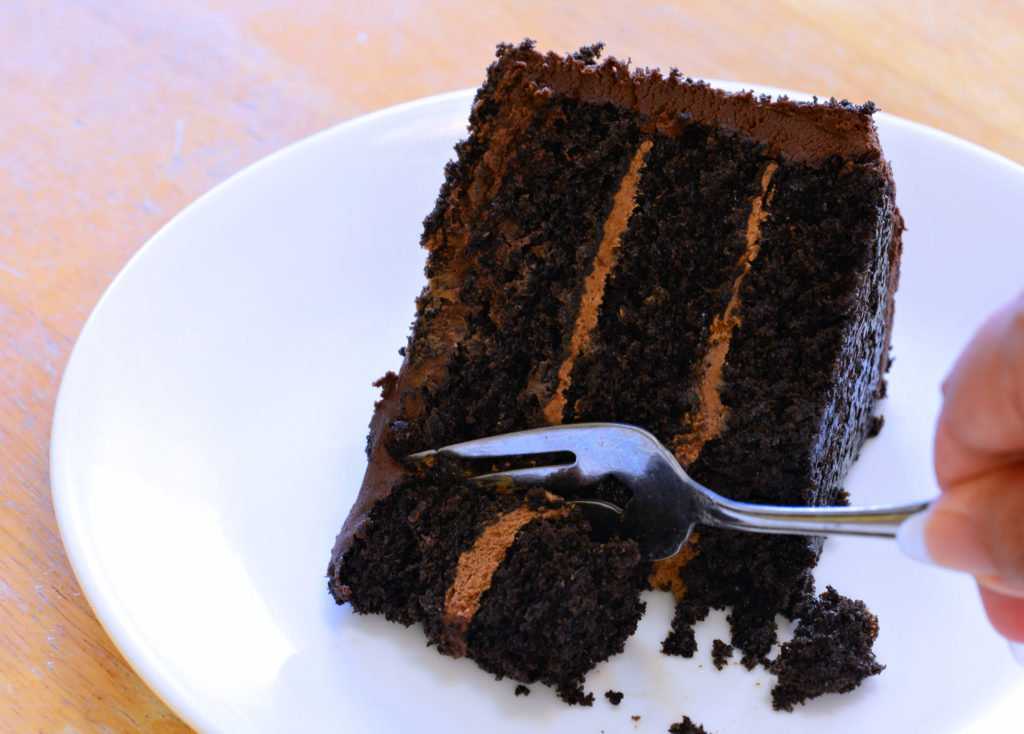
Starting your morning with a high-protein food and a "dessert" may help you lose weight and keep it off, a new study suggests.
Presented recently at The Endocrine Society's 94th Annual Meeting, researchers studied about 200 non-diabetic obese people. The subjects were randomly assigned to eat one of two low-calorie diets (about 1,600 calories for men and 1,400 calories for women).
One group ate a low-carbohydrate breakfast with 30 grams of protein that had about 300 calories. The other group ate a 600-calorie breakfast with 45 grams of protein and 60 grams of carbs, which included a small sweet, such as chocolate, a doughnut, a cookie or cake.
While dieters in both groups lost weight—an average of 33 pounds per person—four months into the eight-month study, the low-carb group regained an average of 22 pounds a person.
However, the people who ate the larger breakfast with dessert ended up losing another 15 pounds on average, according to ScienceDaily. Also, the group who ate dessert said they felt less hungry and suffered from fewer cravings as compared to the other group.
So what's behind these big results? Experts say that "starting your day off with calories consisting of protein and carbohydrate will start the day off right, leaving you feeling full and satiated."
"Although dietary restriction often results in initial weight loss, the majority of obese dieters fail to maintain their reduced weight," wrote the study's authors.
MUST READ: 8 Food Combinations That Will Make You Sick
Diet-related weight loss often triggers hunger and cravings while decreasing suppression of ghrelin, a hormone that stimulates hunger, the researchers said.
This may encourage weight gain. But, "a high protein and carbohydrate breakfast may overcome these compensatory changes and prevent obesity relapse," they concluded.
But at least two U.S. nutrition experts question the wisdom of encouraging regular consumption of sweet, calorie-dense, low-nutrition foods.
"A combination of protein and carbohydrates may have kept these study volunteers satisfied, but you have to pay attention to the quality of foods you're eating, too," said clinical nutritionist Lauren Graf at Montefiore Medical Center, in New York City. "You don't want to encourage people to eat a lot of foods with trans fats, like doughnuts, cookies and cakes." Trans fats, which are partially hydrogenated oils found in baked goods and other products, can raise blood cholesterol levels.
The researchers speculated that dieters who had sweets with breakfast had lower levels of ghrelin, the hunger hormone, so they weren't as hungry and were less likely to crave the foods they'd eaten earlier in the day.
It's not just about what you eat or depriving yourself of a food, but how much of it you eat plays a big factor as well.
Heller suspects that eating a healthy form of protein at each meal and snack likely helped these dieters feel full and keep their blood sugar levels on an even keel.
Graf said the study shows that a strict low-carbohydrate diet isn't necessarily the best long-term approach to weight loss. "If you love sweets, maybe having them once or twice a week is okay, though I don't recommend processed foods. It's all about having clean, possibly homemade sweets, that are not processed" she added.
Data and conclusions presented at meetings should be considered preliminary until published in a peer-reviewed medical journal.









